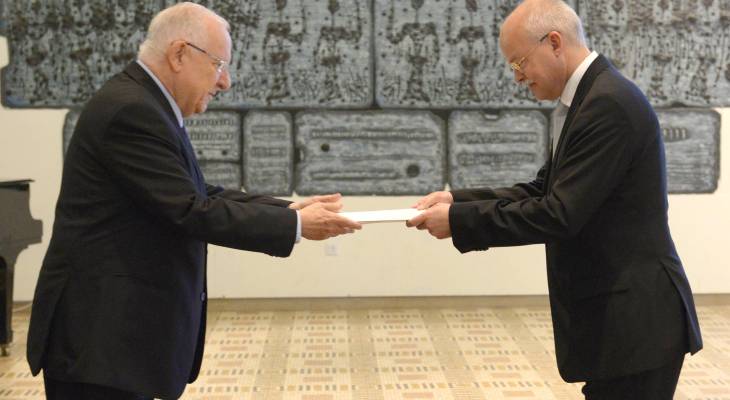According to German ambassador to Israel Clemens Von Goetze, the EU’s initiative to mark products originating in Judea and Samaria is merely a technical step. Most Israelis are not convinced.
By: JNi.Media
German ambassador to Israel Clemens Von Goetze, his country’s former Foreign Ministry’s political director, told Israel Radio on Wednesday that Germany strongly opposes any kind of boycott of Israeli products. According to Von Goetze, the EU’s initiative to mark products originating in Judea and Samaria is merely a technical step.
Israel is anticipating a decision by the EU in the next few days on guidelines for member states to begin labeling goods from Jewish businesses in Judea and Samaria to differentiate them from products made inside Israel’s 1949 armistice border.
Deputy Foreign Minister Tzipi Hotovely said Tuesday at a press conference at the Barkan industrial Park in Judea and Samaria that the move to mark products from Jewish communities is part of a clear process of delegitimizing the State of Israel. “Whoever is trying to boycott certain regions of Israel is basically boycotting the state itself and creating delegitimization of the state,” she said. “When you boycott Judea and Samaria,” she added, “you eventually boycott Tel Aviv.”
Meanwhile, Knesset Member Tzipi Livni (Zionist Camp) criticized the government’s conduct regarding the European Union’s initiative to mark products manufactured beyond the 1949 armistice line, telling Israel Radio that she opposes the European initiative, but the government does not know how to deal with this challenge.
According to the Financial Times, many UK supermarkets introduced labeling in 2009, and already mark products from farms in the region “West Bank (Israeli settlement)” and “West Bank (Palestinian product)” respectively. Denmark and Belgium follow similar guidelines.
Also according to the Financial Times, Israeli farmers in the Jordan Valley have shifted their sales to Russia, the US and Canada, and don’t bother being treated as second class vendors in Europe. Russia, which gets more of its food from outside the EU since the start of sanctions over the Ukraine conflict, has been a particularly welcome buyer in Judea and Samaria.
